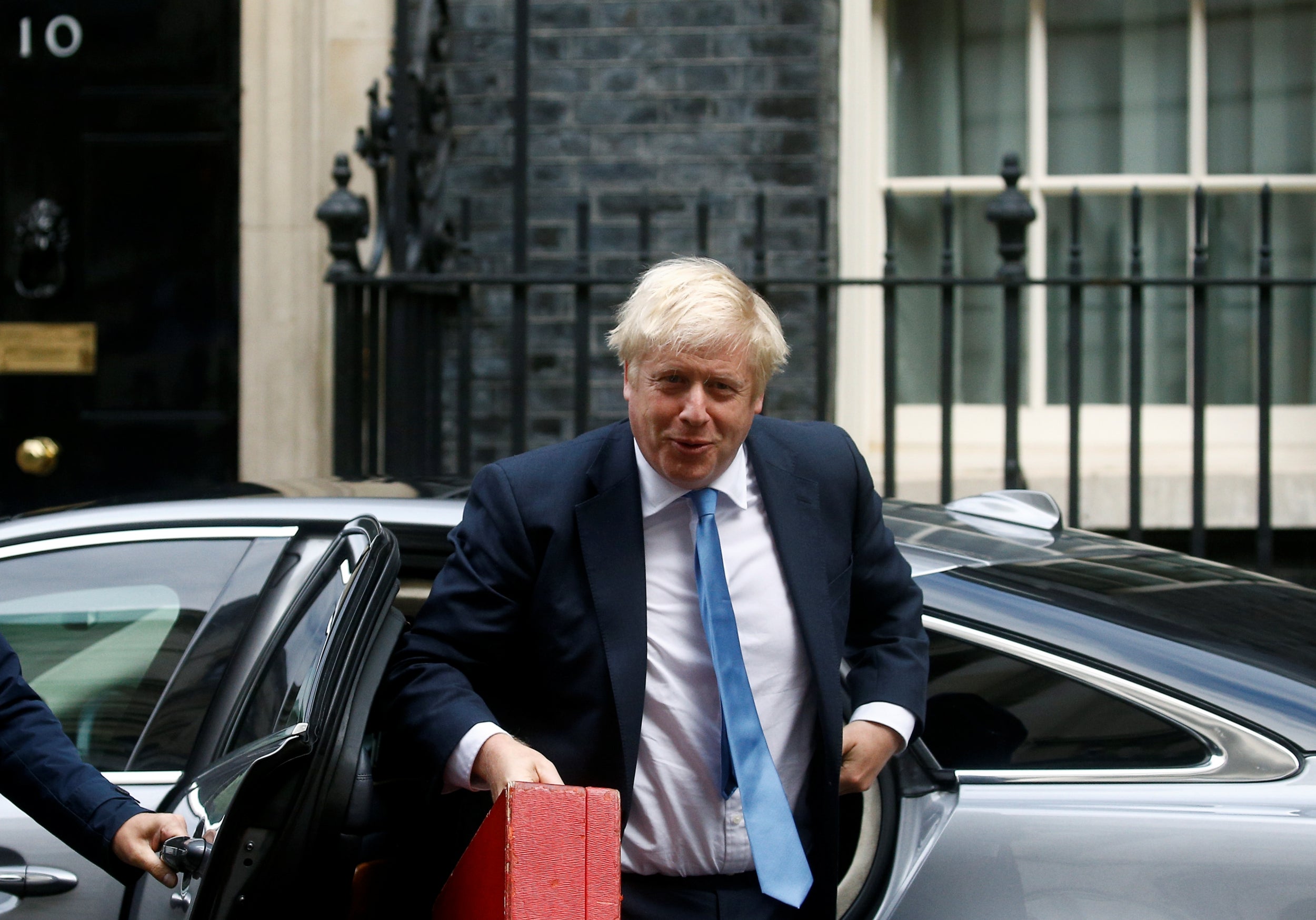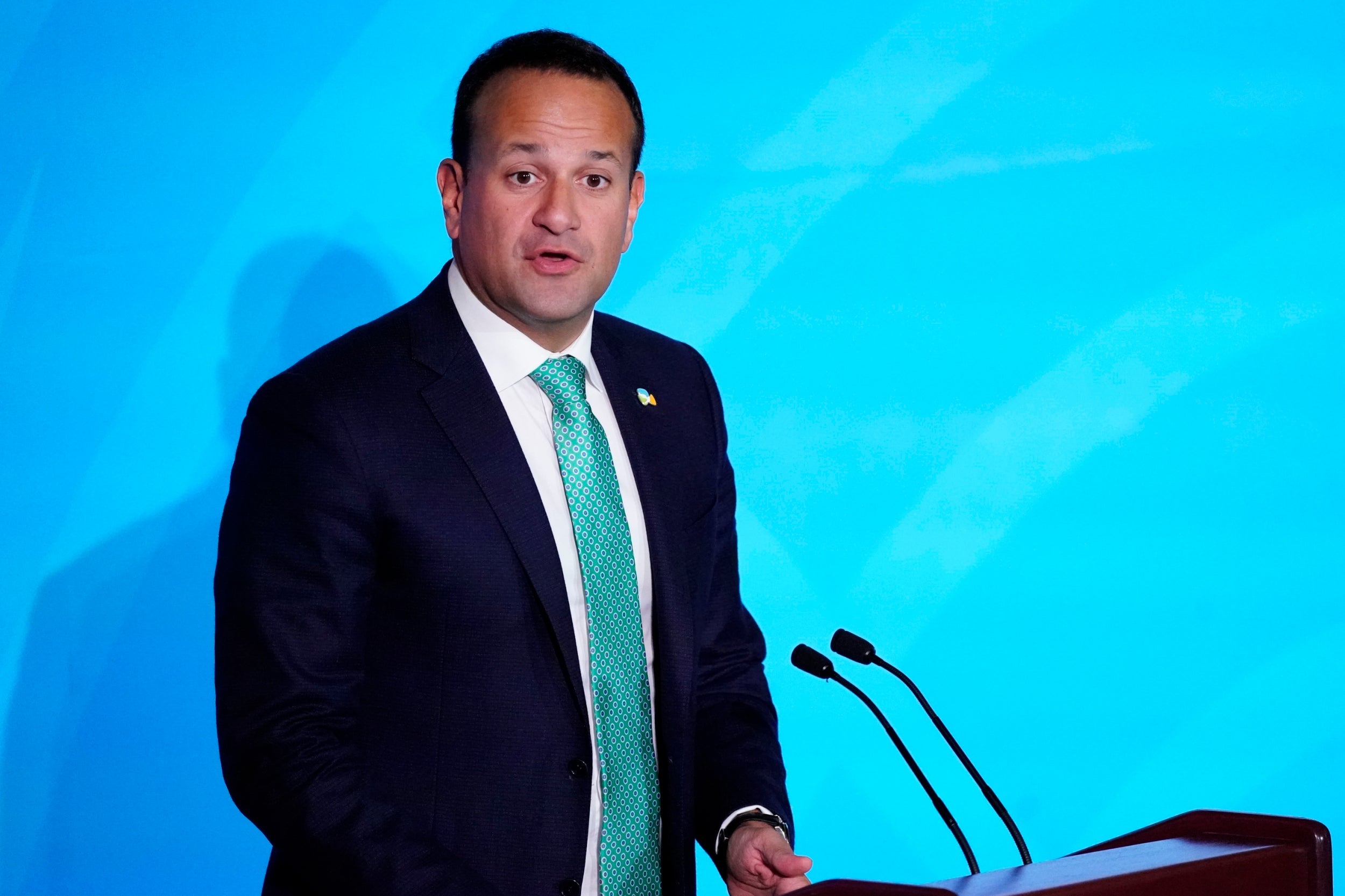Your support helps us to tell the story
From reproductive rights to climate change to Big Tech, The Independent is on the ground when the story is developing. Whether it's investigating the financials of Elon Musk's pro-Trump PAC or producing our latest documentary, 'The A Word', which shines a light on the American women fighting for reproductive rights, we know how important it is to parse out the facts from the messaging.
At such a critical moment in US history, we need reporters on the ground. Your donation allows us to keep sending journalists to speak to both sides of the story.
The Independent is trusted by Americans across the entire political spectrum. And unlike many other quality news outlets, we choose not to lock Americans out of our reporting and analysis with paywalls. We believe quality journalism should be available to everyone, paid for by those who can afford it.
Your support makes all the difference.Ireland has told Boris Johnson that it needs to see his proposals to solve the Irish border problem by next week, ramping up the pressure on the embattled prime minister as the clock ticks down to the 31 October exit date.
Leo Varadkar threw his weight behind an unofficial deadline set by Emmanuel Macron and the EU presidency, who had said proposals need to be in by the end of the month or “it’s over”.
The demand puts the UK and the EU on a collision course ahead of a make-or-break summit later in October, where Mr Johnson will meet EU27 leaders as a group for the first time.
Though technical talks continued in Brussels on Wednesday, Downing Street has said it will not be bound by “artificial deadlines”, while the Brexit secretary Stephen Barclay has even suggested that plans for the border can wait until the end of next year.
“We have working methods and I know that President Tusk and other EU heads of government would like to see British proposals in writing really in the first week of October, otherwise it is very hard to see how we could agree something at the summit in the middle of October,” the taoiseach told reporters at the UN general assembly in New York.
“The withdrawal agreement is actually an international treaty. It’s not the kind of thing that can be amended or cobbled together late at night at the European Council meeting on 17th of October.
“So if the UK does have meaningful proposals, changes that they would like to suggest to the withdrawal agreement or to the joint political declaration more particularly, we really need to see them in advance so that they can be worked through and worked up in advance of the EU summit.”
Brussels officials and diplomats have warned that “concepts” put forward by the UK so far in a series of confidential off the record “non-papers” fall far short of anything close to replacing the Irish backstop, which Mr Johnson has said he cannot accept.
Guy Verhofstadt, the European parliament’s Brexit chief, again on Wednesday said the two sides were “still far from a deal”.
“They are not meeting the three conditions,” he said. “This point is not solved and this backstop needs to be in place as it is for them. We have already said from day one that if they want to change the backstop, they can go to the one they first proposed because the backstop as it is now was at the request of the UK government.
“It was not the initial proposal of the EU side or whatever European negotiator. We wanted a Northern Ireland backstop only and also for the good reason that the majority of Northern Ireland voted against Brexit, so let’s not forget that.”

EU chief negotiator Michel Barnier told reporters earlier this week that “the current state” of UK thinking on the issue meant that a replacement for the backstop looks improbable, and that it was “difficult to see” a deal being reached.
Boris Johnson has said the UK will be leaving the EU at the end of October “do or die”, raising the prospect of a no deal – though parliament has legislated to instruct him to demand an extension to avoid Britain crashing out. Any extension would be subject to unanimous approval by EU member states, with some more positive about the idea of prolonging the crisis than others.
The UK’s outlines of its plans presented in talks so far, which have not yet been fleshed out beyond “concepts”, involve Northern Ireland being aligned with the EU on some rules such as agriculture, known as SPS – but only with the say-so of the Stormont assembly. Northern Ireland would also remain part of a single Ireland electricity market.
But in other areas, such as manufactured goods and industrial goods, various “facilitations” would be employed so that there were checks and controls for products moving between Ireland and Northern Ireland, but they were carried out away from the border.
But EU officials said last week that the plans almost resembled the kind of thinking proposed by British negotiators during the early days of Theresa May’s premiership – ideas they have long dismissed. They say the plans would not prevent checks and controls to the extent required to maintain the Northern Ireland peace process, and would also damage the integrity of the single market and facilitate smuggling.

Join our commenting forum
Join thought-provoking conversations, follow other Independent readers and see their replies
Comments